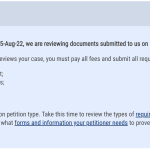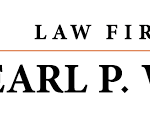Attorneys uphold the law and ensure people have access to justice. Their daily responsibilities may include research, writing legal documents and attending court proceedings.
However, the demands of this profession can be straining; many attorneys experience burnout when working on emotionally taxing cases.
Client Counseling
Client counseling is an integral component of an attorney’s role. It involves explaining legal options available to clients and helping them make decisions, while showing empathy while remaining detached. Clients may come seeking help for various concerns: an aggrieved client will require empathy as well as listening skills from his lawyer; accused individuals may need representation against being unfairly charged; witnesses require counseling in describing events that occurred; etc.
As part of client counseling, the first step should be establishing trust. This can be accomplished through showing respect, honesty and transparency while showing professionalism and empathy; for instance if dealing with medical professionals it may help if using terminology related to medicine can reassure clients about your competence.
As part of the counselling process, it is crucial for attorneys to ascertain the needs and goals of their client. This can be accomplished through conducting an in-depth interview that covers analysis of client situation, possible outcomes and comparison of alternatives; also discussed is legal process as well as risks/benefits associated with each option presented by client.
As part of their service to their client, attorneys should explain and ensure the confidentiality of communications between themselves and their client. This will prevent their client from mistrusting or avoiding communication altogether with them. Furthermore, it’s vital that attorneys be ready to deliver bad news; many grievances stem from ineffective communication so it is essential that attorneys deliver it effectively; this includes clarifying what will occur if their client withdraws from a case; this helps the client make informed decisions as well as clearly outlining why continuing the case may be in their client’s best interest.
Document Preparation
Document preparation services can be invaluable assets in legal cases – be they divorce, contract disputes or simple misdemeanor cases – where individuals or businesses representing themselves (“pro se litigants”). Improper filling of forms could have serious repercussions so hiring one with experience is key.
Document preparation services provide their clients with help preparing legal documents at much lower costs than an attorney could charge. Preparation usually entails reviewing an individual’s current situation, gathering relevant paperwork and information and then creating draft documents to be reviewed by reviewers and ultimately signed. It is essential for legal document preparers to have a system in place for tracking any changes made by either them or clients as this helps track changes made over time and ensure accountability for changes that were made by either.
An attorney’s primary responsibility in this regard is ensuring all draft documents comply with the filing requirements for their particular state, county or region of filing. This may involve using proper terminology and making sure all signatures are present; paying such close attention can save both time and money for clients by preventing costly errors from arising and delaying filing processes.
Lawyer duties involve the ability to craft legal documents such as contracts, pleadings and wills that accurately reflect their client’s intentions while complying with all relevant laws and regulations. Furthermore, this may involve creating arguments and conducting research to support their client during legal proceedings.
Hiring an attorney may be the ideal option when it comes to legal matters; however, their costs may not always be within reach for all. When this is the case, document preparers can be an affordable alternative that provides legal information – but cannot give legal advice since this would violate state unauthorized practice of law statutes.
Litigation
Litigation is the formal legal process that involves the resolution of rights-based disputes through our court system, from filing a lawsuit through arguments on legal motions and discovery phases to trials or appeals in courtroom settings.
Litigation begins when a client approaches an attorney with a potential legal dispute, such as unpaid rent or misappropriated company profits by former business partners. An attorney will assess and then conduct independent research into all relevant aspects of their client’s case – gathering all available documentation that supports his/her case and creating evidence.
Once this step is completed, a client will officially file a lawsuit against their opposing party and begin proceedings before an initial court hearing in front of a judge or jury, which can be an exhaustive and challenging process. Depositions where parties answer under oath questions under oath may occur as part of this step; professional witnesses may need to be hired by attorneys representing one side versus the other as needed during these steps; additionally there may be steps between this final step and enforced judgement being implemented – for example there may be appeal options if either party feels dissatisfaction with its results.
Research
Legal research is an integral component of an attorney’s job. They must know which laws and precedents apply in their client cases and how other lawyers have handled similar issues in the past. Attorneys use case law, expert opinions, and personal experience to predict outcomes of cases while digital research tools help speed up this process.
Lawyers specialize in specific areas of law, such as patents, family law or criminal defense. Others work for government as prosecuting attorneys or public defenders or serve as administrative or executive positions like agency head or legislative assistant. Still others provide private practice research services for client cases currently underway.
Researching is a time-consuming task that can be particularly daunting for attorneys. Effective written communication skills are paramount; being able to present complex data in easily understandable formats helps researchers achieve results for both their clients and themselves.
An understanding of how to navigate major legal research databases is also vitally important. LexisNexis and Westlaw are popular search engines that attorneys utilize for legal precedent, though there may be others worth exploring as well. A clear plan of action with designated responsibilities assigned can ensure the attorney stays on schedule while cutting out time-wasting avenues of research can increase efficiency.












